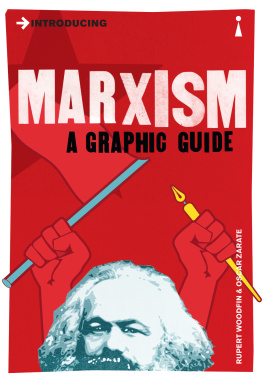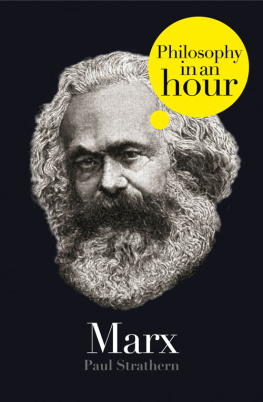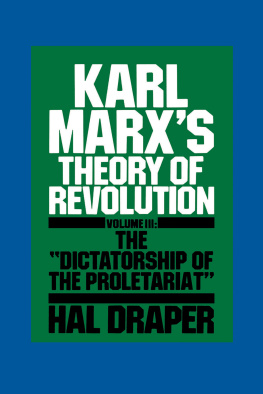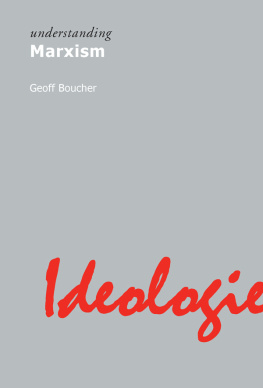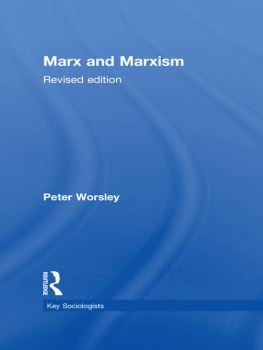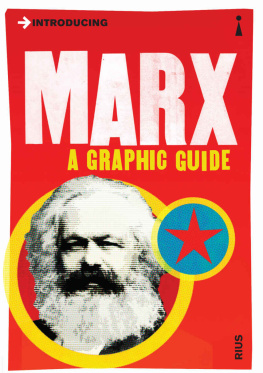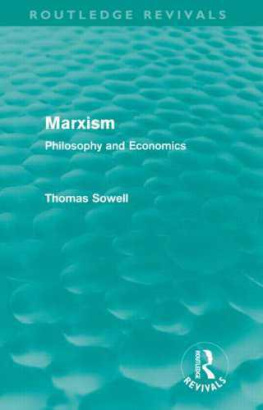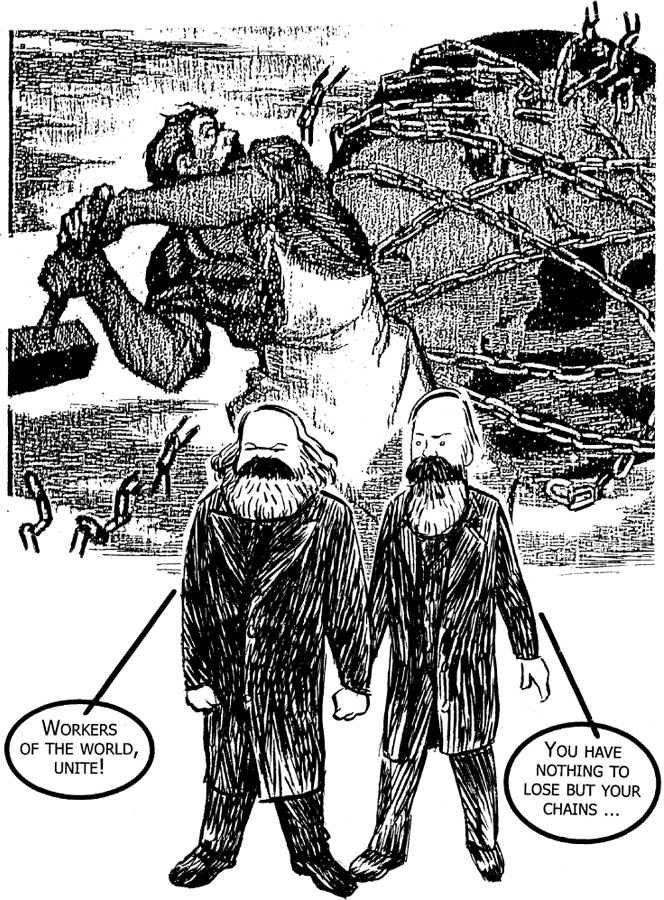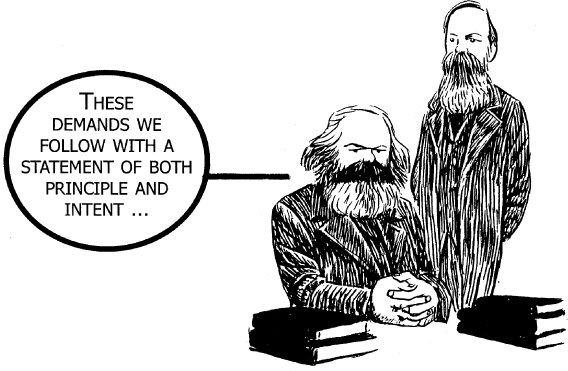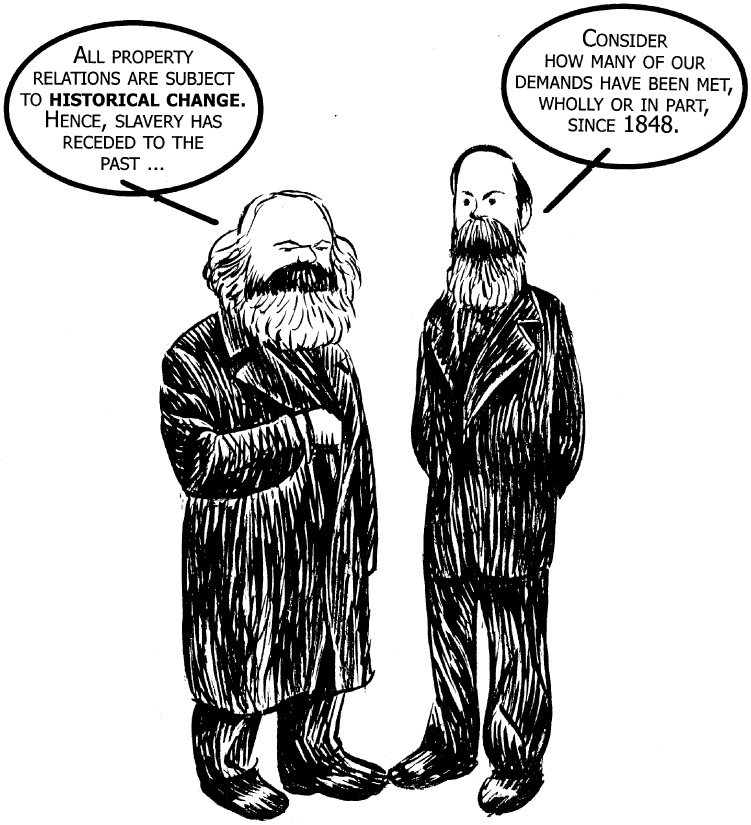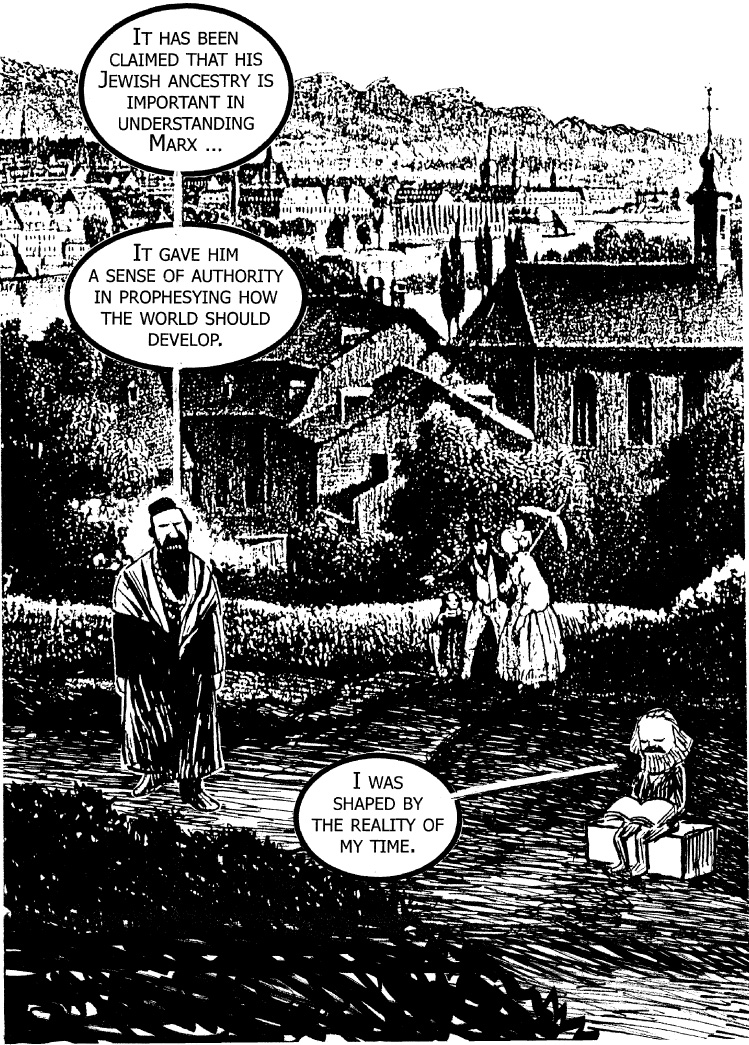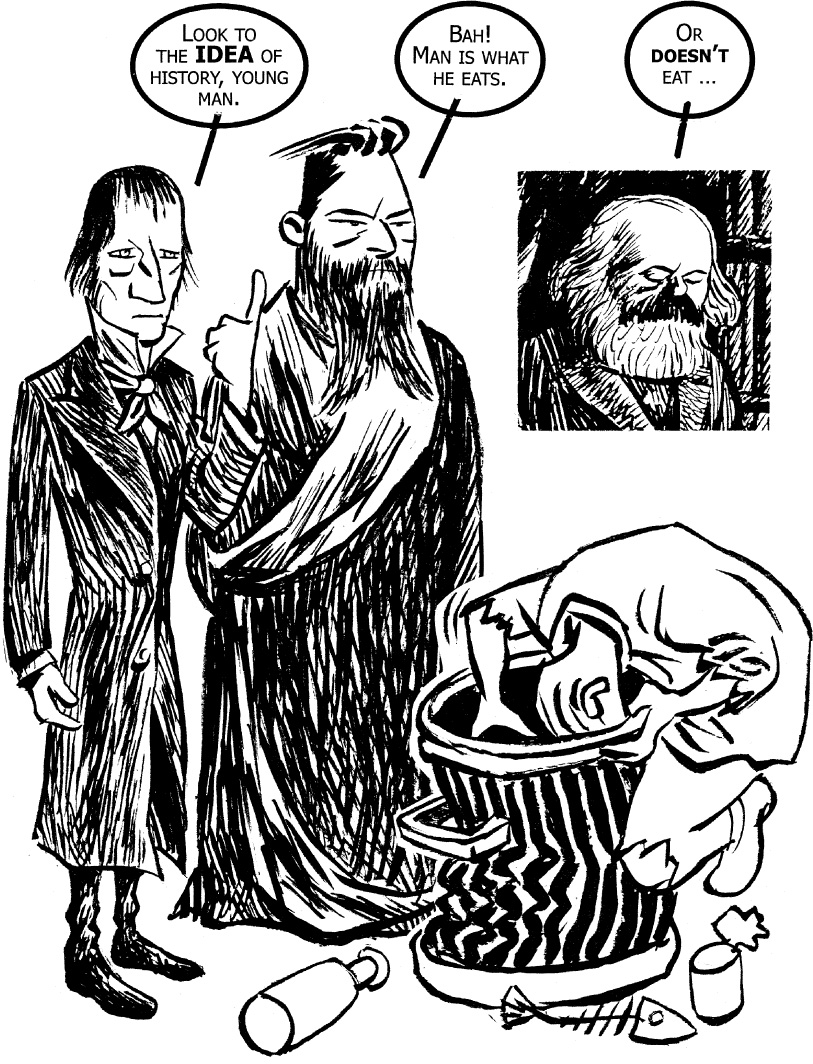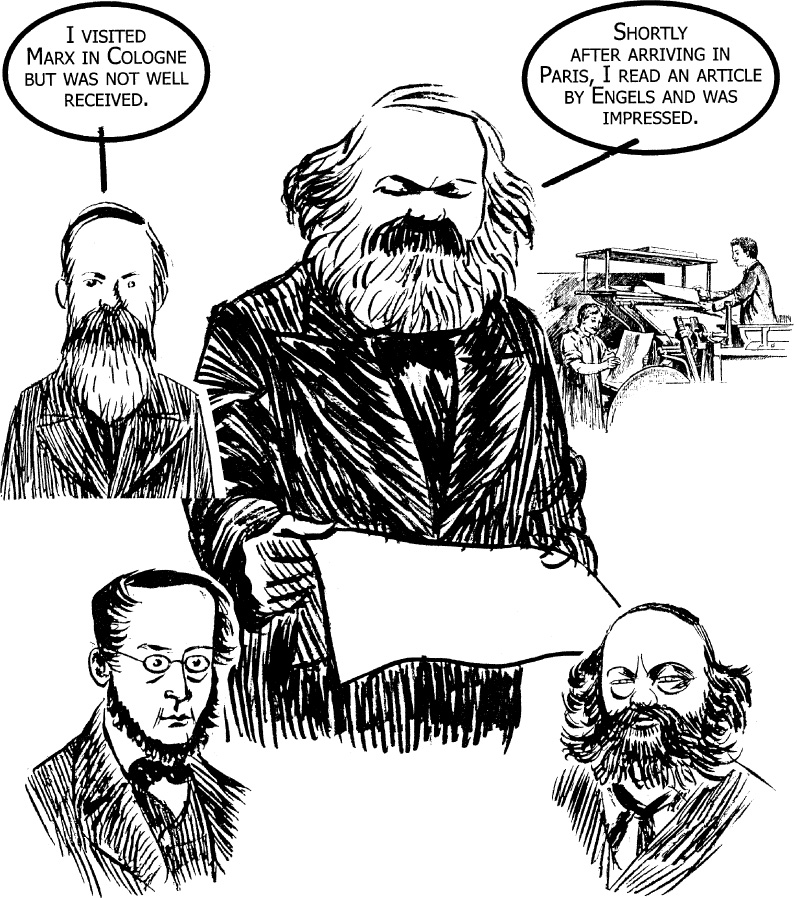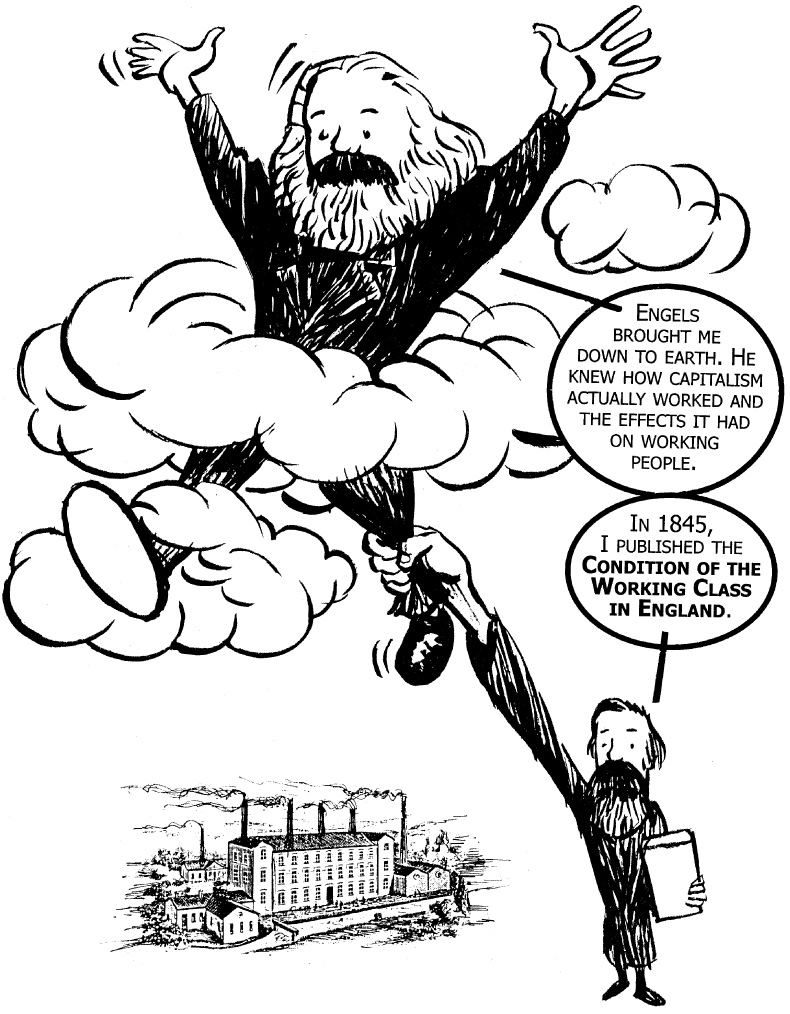Published by Icon Books Ltd, Omnibus Business Centre, 39-41 North Road, London N7 9DP
email:
www.introducingbooks.com
The author and artist have asserted their moral rights.
No part of this book may be reproduced in any form, or by any means, without prior permission in writing from the publisher.
WORKERS OF THR WORLD, UNITE! YOU HAVE NOTHING TO LOSE BUT YOUR CHAINS ...
The Communist Manifesto
The Manifesto has left an indelible mark on human progress and still today forms the basis for a system of political beliefs that motivates millions. Even after the fall of the Berlin Wall in 1989, and the collapse of Communism in Russia and Eastern Europe, its authority and prestige remain for many. What did it say that seemed so important and revolutionary? The key demands, in the authors own words, were ...
Abolition of property in land and application of all rents of land to public purposes.
A heavy progressive or graduated income tax.
Abolition of all rights of inheritance.
Confiscation of the property of all emigrants and rebels.
Centralization of credit in the banks of the state, by means of a national bank with state capital and an exclusive monopoly.
Centralization of the means of communication and transport in the hands of the state.
Extension of factories and instruments of production owned by the state; the bringing into cultivation of waste lands, and the improvement of the soil generally in accordance with a common plan.
Equal obligation of all to work. Establishment of industrial armies, especially for agriculture.
Combination of agriculture with manufacturing industries; gradual abolition of all the distinction between town and country by a more equable distribution of the populace over the country.
Free education for all children in public schools. Abolition of childrens factory labour in its present form. Combination of education with industrial production, etc.
THESE DEMANDS WE FOLLOW WITH A STATEMENTS OF BOTH PRINCPLE AND INTENT ...
If the proletariat during its contest with the bourgeoisie is compelled, by the force of circumstances, to organize itself as a class; if, by means of a revolution, it makes itself the ruling class, and, as such, sweeps away by force the old conditions of production, then it will, along with these conditions, have swept away the conditions for the existence of class antagonisms and of classes generally, and will thereby have abolished its own supremacy as a class. In place of the old bourgeois society, with its classes and class antagonisms, we shall have an association in which the free development of each is the condition for the free development of all.
It is from these words that, during the next century and a half, revolutionary action swept first across Europe and then across the world.
ALL PROPERTY RELATIONS ARE SUBJECT TO HISTORICAL CHANGE. HENCE, SLAVERY HAS RECEDED TO THE PAST ... CONSIDER HOW MANY OF OUR DEMANDS HAVE BEEN MET, WHOLLY OR IN PART, SINCE 1848.
Brief Life of Marx
Karl Marx was born in 1818 in Triers in the Rhineland of Germany. He was Jewish and came from a line of rabbis but his own father was a lawyer. When he was six, his family converted to Christianity and he grew up a Lutheran.
IT HAS BEEN CLAIMED THAT HIS JEWISH ANCESTRY IS IMPORTANT IN UNDERSTANDING MARX ... IT GAVE HIM A SENSE OF AUTHORITY IN PROPHESYING HOW THE WORLD SHOULD DEVELOP. I WAS SHAPED BY THE REALITY OF MY TIME.
As a student, philosophy influenced him greatly, particularly the works of G.W.F. Hegel (17701831). He came to reject the mystical and idealistic nature of Hegels work and turned to the materialistic ideas of a Young Hegelian disciple, Ludwig Feuerbach (180472). He was soon to move far beyond Feuerbach to the view that the everyday material conditions under which people live actually create the way they see and understand the world.
LOOK TO THE IDEA OF HISTORY, YOUNG MAN. BAH! MAN IS WHAT HE EATS. OR DOESNT EAT ...
Meeting Engels
In 1842 he was employed by the Neue Rheinische Zeitung newspaper in Cologne and became editor. Within a year, the newspaper had been shut down by the Prussian authorities because of one of Marxs articles. He moved to Paris, then the centre of socialism, and met the influential French socialist Pierre-Joseph Proudhon (180965) and the Russian anarchist Mikhail Bakunin (181476) (later to become his greatest enemy). He also met Friedrich Engels (182095) again.
I VISITED MARX IN COLOGNE BUT WAS NOT WELL RECEIVED. SHORTLY AFTER ARRIVING IN PARIS, I READ AN ARTICLE BY ENGLES AND WAS IMPRESSED.
When Engels introduced himself again in Paris, Marx welcomed him as an intellectual equal and political brother-in-arms.
Together they went on to establish Marxism as an intellectual force. Engels family were rich owners of cotton-spinning factories in Manchester and Westphalia. He was able to support Marx financially in the hard times to come. But this was not his most important contribution. Marx might have spent his life in an ivory tower of intellectual speculation.
ENGELS BROUGHT ME DOWN TO EARTH. HE KNEW HOW CAPITALISM ACTUALLY WORKED AND THE EFFECTS IT HAD ON WORKING PEOPLE. IN 1845, I PUBLISHED THE CONDITION OF THE WORKING CLASS IN ENGLAND.
Engels also alerted Marx to the importance of Great Britain for the development of capitalism.
The Exile, Agitator and Writer
The Prussian state asked the French authorities to give Marx a hard time. He was duly thrown out of Paris in 1845. He went to Brussels and began a life of political agitation and propaganda.

